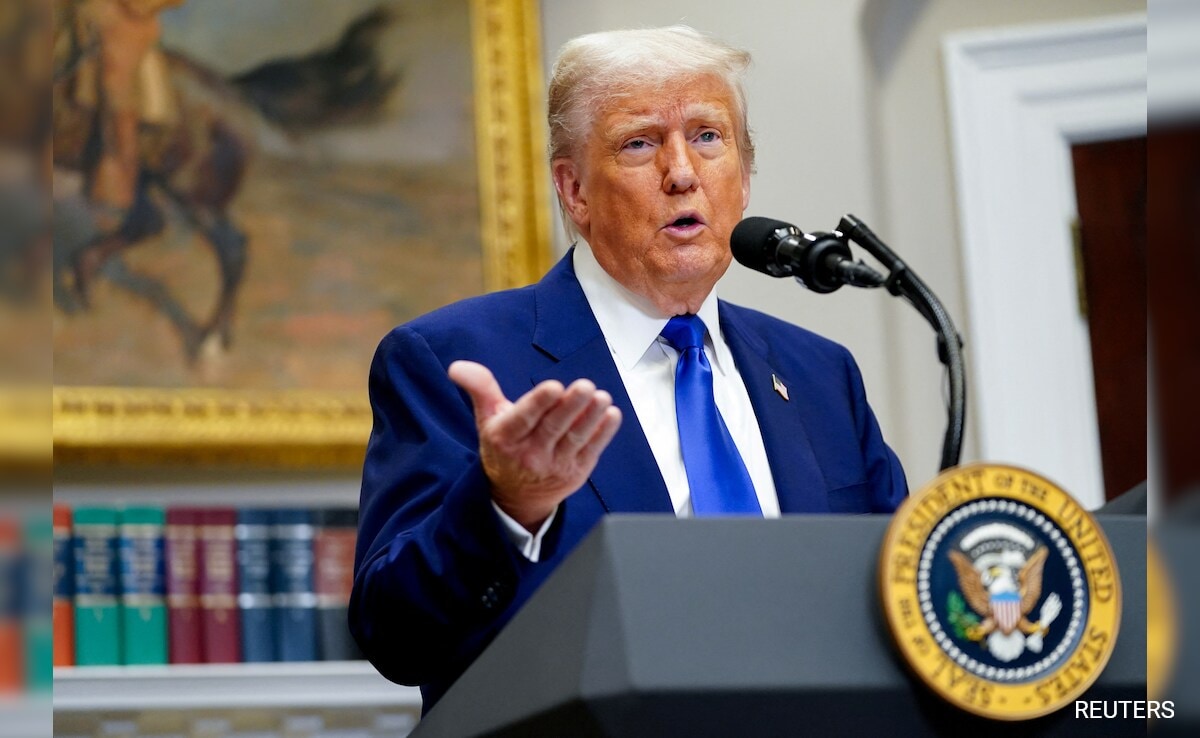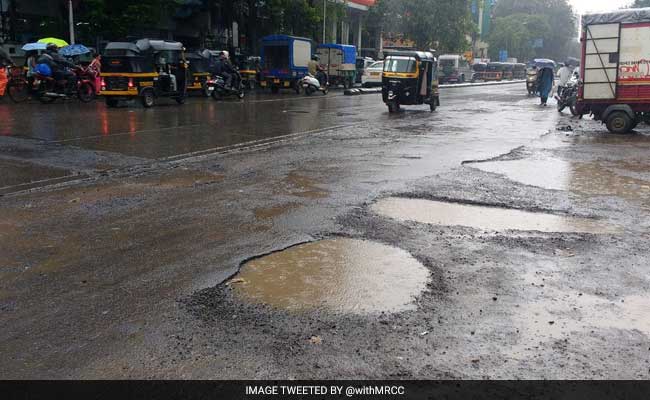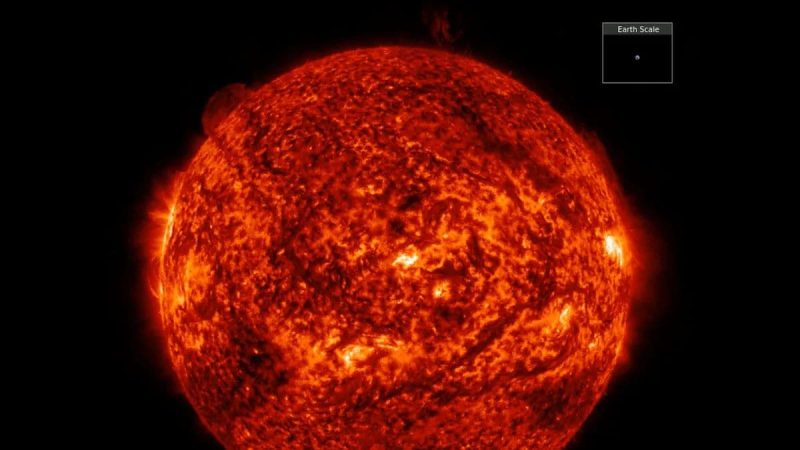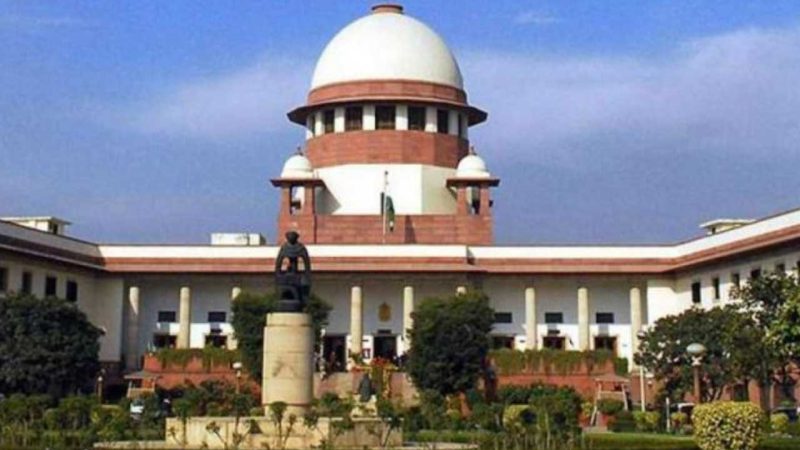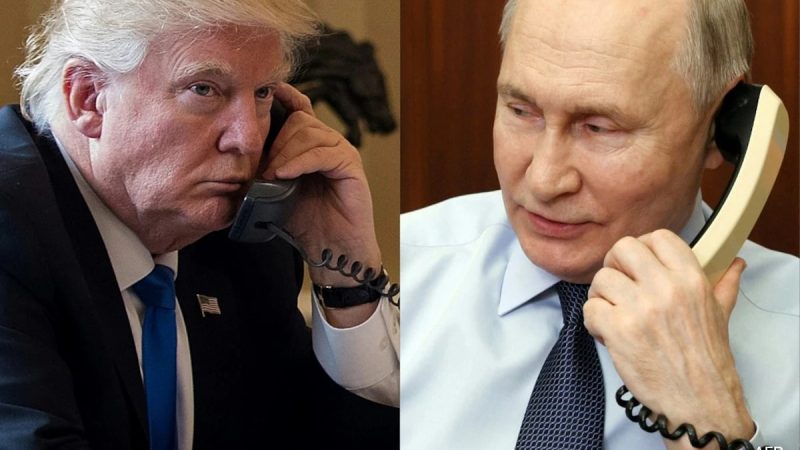Every family has stories of courage. My uncle, my father’s older brother, is one of the Adampur Tigers who bombed the Sargodha air base in broad daylight in the 1965 war, an audacious attack, still studied by the Pakistani Air Force. The future of war is no longer following that manual. While the heroism of Indian forces remains the same, this new paradigm comes with deceptive and fast-changing geopolitical realities. The mix could not be more lethal.
TRUMP NEGOTIATES FROM THE BULLY PULPIT
While India tries to decipher motivations behind Trump’s mixed messaging over the past week, wondering if it’s his usual bloviation, a shady Pakistan crypto deal with personal benefits, or a negotiating tactic for a lopsided trade agreement from his ‘Art of the Deal’ playbook, it is clear that Trump’s Plan A was having issues, so he moved to Plan B.
Plan A was Trump’s tariff war, primarily aimed at China. But the unprecedented speed of the US market crash and an uncooperative Fed led to Trump putting this plan on a snooze button, with the hope of reviving it when the Fed chair is replaced next year.
Plan B is pausing the tariff war and consolidating American influence by wooing states that already are or face the risk of going to the Chinese bloc. Trump’s Middle East trip this week sent out dystopian messages: the US president shook hands with an ex-Al Qaeda leader, considered accepting a luxury 747 jet from Qatar, a country he’s labelled as ‘funders of terror’, reached out to Turkey’s Erdogan, and hinted at a reversal of stance on Iran’s nuclear deal. Being overly lenient towards Pakistan seems part of that strategy. If India rightfully bristles about its out-of-nowhere hyphenation with Pakistan, so is Israel taken aback about Syria, and Europe about Putin. In this sudden flip, Trump wants to use India’s tense week to his negotiating advantage – an international bully wanting to claim victory for a strong US trade deal. But this seems to be a small reel in the bigger film, one that shows no signs of change.
“DE-CHINAFICATION”
At the centre of almost any major geopolitical event over the last decade, including what just happened between India and Pakistan, is the biggest macro trend the world is currently witnessing: de-globalisation, or, as I call it, “de-Chinafication”.
The hyper-globalisation that began in the 1990s is seeing its great unwind. Since the primary winner of this tide was China, the primary loser, as the trend reverses, will also be China. As the old Wall Street adage goes, facts follow stock prices. Since the Covid-19 crisis, the Indian stock market is up more than 300%, while China’s has fallen 20%. China’s post-COVID-19 growth has stumbled, and investments have stalled.
Adding to this, recent company earnings commentaries indicate that global supply chains long thought to be in China’s favour are, in fact, a lot more flexible and nimble than anticipated.
The dragon is seething. And in its direct line of fire is the country closest to being a challenger: India.
A DECELERATING CHINA LASHES OUT
It is a striking coincidence that the biggest terrorist attack India has seen since 26/11 eclipsed India’s biggest economic headline in recent years: Apple announcing it will move all its iPhone production from China to India. As the world’s largest company, Apple’s announcement is the ultimate stamp of ‘de-Chinafication’. Where Apple goes, sooner or later, most will follow.
Unable to stop this decoupling, China may be trying to make it harder for American companies to move to India. And Pakistan is its more than willing lackey.
INDIA WILL WEATHER THIS STORM
It is now well-established across global military and open-source experts that India emerged as a winner in this conflict. India’s new muscular, zero-tolerance doctrine for terror is the right and only choice.
But, as Beijing’s deception and denial continue to play out in war zones and in places and times New Delhi least expects, India will face a challenging task of simultaneously protecting both its people and its economic ascension.
In the midst of this storm, India will also need to weather a tumultuous Trump, who seems hell-bent on bullying his friends more than his adversaries.
As my fighter pilot uncle says, “When everything seems to be going against you, remember that an airplane takes off against the wind, not with it.” I believe India will do the same.
(Namrata Brar is an Indian-American journalist, investigative reporter, and news anchor. She is the former US bureau chief of NDTV)
Disclaimer: These are the personal opinions of the authors

